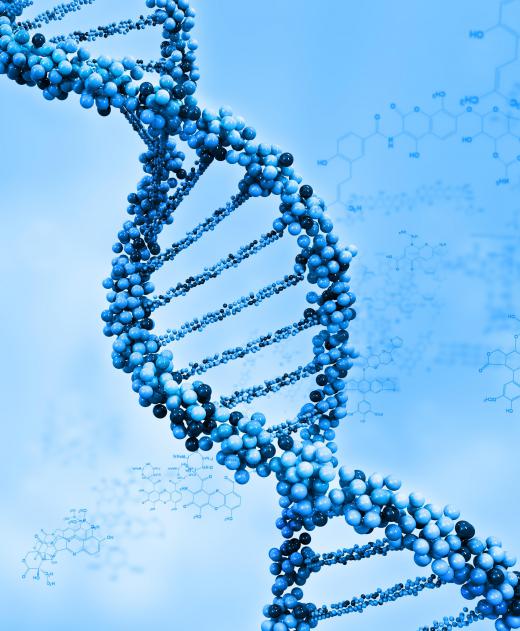What is a Genomic Library?
 Mary McMahon
Mary McMahon
A genomic library is a collection of bacteria which have been genetically engineered to hold the entire DNA of an organism. The size of the library varies, depending on how the DNA is stored in the bacteria, and the length of the genome of the organism. Genomic libraries are used in genetic research all over the world in various lab facilities. Companies which manufacture genomic libraries can provide them by special order to researchers.
Assembling a genomic library starts with treating the DNA of the organism under study so that it breaks up into manageable chunks, which are organized by length and then inserted into cloning vectors such as plasmids. Different vectors can store differing amounts of DNA. Once the DNA has been inserted, the vector can be introduced to the bacteria. Together, the collection of bacteria holds an organism's complete genome.

Once a genomic library is produced, researchers can work with it in a number of different ways. For example, they can seek out specific DNA chains in the library with the use of probes which are designed to identify and tag specific amino acid sequences. With the use of a probe, sequences can be isolated for further study and analysis to learn more about particular areas of interest in the genome. The genomic library can also be stored, frozen, for future reference. As long as it is kept in stable conditions, it can last for an extremely long time.

Using a genomic library, researchers can explore the genome of an organism to learn more about genomic structure and function. They can also map the genome, identifying the locations of specific genes. This information becomes extremely useful when researchers want to develop tests which can be used to locate genetic variations including mutations which may be related to congenital conditions. The deeper the understanding of an organism's genome, the more researchers can know about the organism as a whole.

A genomic library can also be used for the purpose of cloning segments of DNA. The vectors in the host bacteria can be replicated by the host to create a number of copies of a segment of interest, with these copies being further studied or inserted into other vectors for genetic modification and other research purposes. Cloned materials, for example, could be inserted into crops for the purpose of introducing specific modifications with the goal of improving crop performance.
AS FEATURED ON:
AS FEATURED ON:













Discussion Comments
I hear that the Human Genome Project has mapped out the thousands of genes in human DNA. They’ve put all of this information in a database. This is a monumental achievement, in my opinion, as it will enable scientists to trace out the origins of many diseases and sicknesses which are still without cures.
I realize that there will also be ethical questions about these kinds of issues, especially when it comes to opening up the possibility for cloning. But in the long run, the pros far outweigh the cons. Many people will be helped by the discoveries that come from gene research.
Post your comments